Economic Indicator
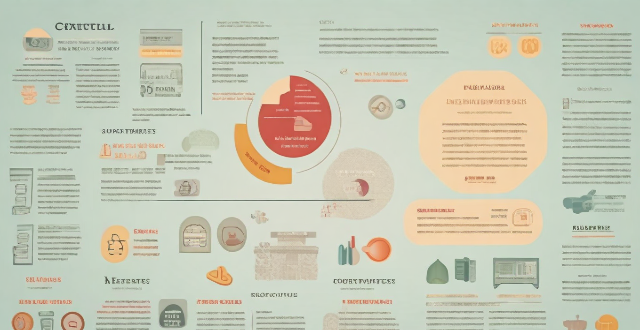
What is the GDP and why is it considered a crucial economic indicator ?
GDP is a crucial economic indicator that measures the market value of all final goods and services produced by a country in a specific time period. It serves as a measure of economic activity, national wealth, and a benchmark for international comparisons. GDP also impacts financial markets, reflects the standard of living, influences global perceptions, and drives employment opportunities. However, it should be considered in conjunction with other indicators for a more holistic understanding of an economy's health.
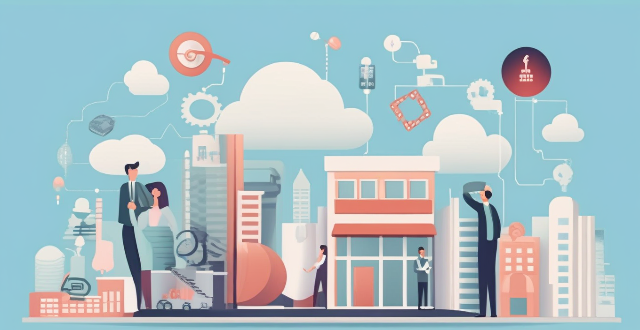
What are the key indicators of economic recovery ?
Economic recovery is a complex process that involves several key indicators. These indicators are used to gauge the health and growth of an economy after a period of decline or recession. Some of the most important indicators of economic recovery include GDP growth, employment rates, consumer spending, business investment, the housing market, inflation rates, trade balance, and stock market performance. Each of these indicators provides valuable insights into the overall health and growth of an economy.

What are the key economic indicators to watch for global growth ?
Monitoring key economic indicators such as GDP, inflation rate, unemployment rate, interest rates, trade balance, current account balance, manufacturing and service sector indexes, stock market performance, and consumer confidence indices is crucial for policymakers, investors, and businesses to understand global economic growth. These indicators provide insights into the overall health of an economy, guide decision-making processes, and help predict future trends.
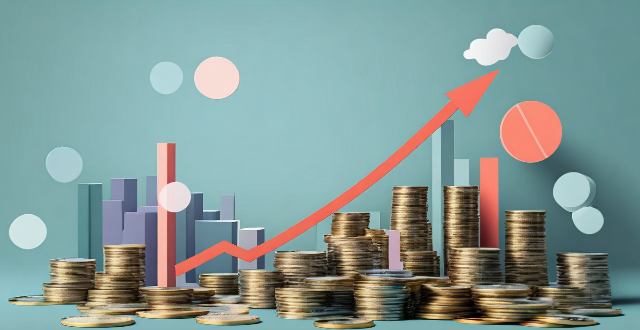
Can economic indicators accurately predict a recession ?
Economic indicators, such as GDP growth rate, employment rate, inflation rate, interest rates, consumer sentiment, and manufacturing/service sector activity, are used to gauge the health of an economy. While these indicators provide valuable insights, their ability to predict a recession is not absolute due to limitations like lagging indicators, false signals, external factors, and policy responses. A combination of indicators and a probabilistic approach can improve accuracy in predicting economic downturns.
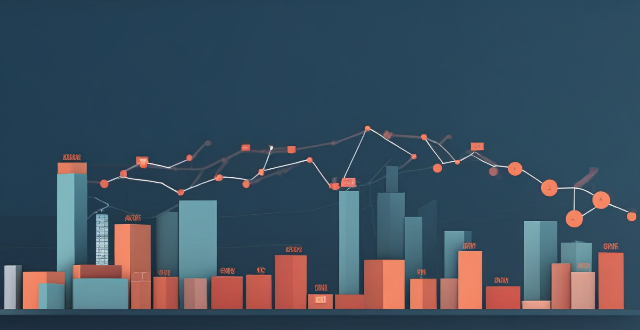
How do economic indicators influence currency exchange rates ?
Economic indicators significantly influence currency exchange rates by reflecting the health and performance of an economy, affecting demand for its currency. Key indicators include Gross Domestic Product (GDP), interest rates, inflation rates, trade balance, political stability, employment data, and consumer confidence. A strong economy typically leads to an appreciation of its currency, while a weaker economy can result in depreciation. These indicators are closely monitored by investors and traders to make informed decisions about buying or selling currencies.

Which economic indicators are most important for predicting inflation ?
Inflation is a critical economic factor that affects the overall health of an economy. It is defined as the rate at which the general level of prices for goods and services is rising, leading to a decline in purchasing power. Predicting inflation is crucial for policymakers, investors, and businesses alike. To predict inflation accurately, several economic indicators are closely monitored. Here are some of the most important ones: 1. Consumer Price Index (CPI) 2. Producer Price Index (PPI) 3. Money Supply 4. Interest Rates 5. Unemployment Rate 6. Gross Domestic Product (GDP) 7. Exchange Rates 8. Oil Prices 9. Housing Prices 10. Wage Growth
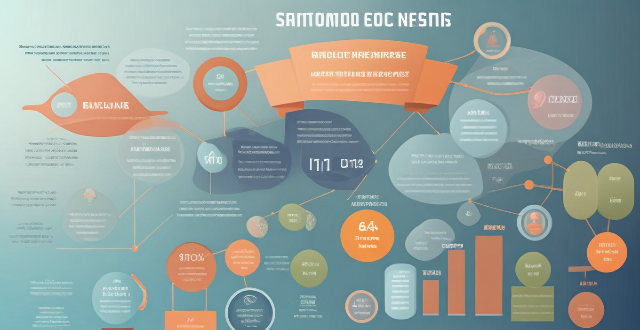
How do economic indicators affect stock market performance ?
Economic indicators significantly impact stock market performance by reflecting the health of an economy. Key indicators include GDP, inflation rate, unemployment rate, interest rates, trade balance, consumer confidence index, and manufacturing index. Each of these measures provides insights into different aspects of economic activity, influencing investor sentiment and decision-making processes. By understanding how these indicators affect the stock market, investors can make informed decisions to maximize returns while minimizing risks.

What role do economic indicators play in policy making by central banks ?
Economic indicators play a crucial role in policy making by central banks. They provide valuable information about the state of the economy, which helps central banks make informed decisions about monetary policy. Economic indicators are used to measure economic performance, identify risks and challenges, guide monetary policy decisions, and communicate with markets. Central banks use these indicators to assess whether the economy is growing at a sustainable pace or if there are any imbalances that need to be addressed. They also help central banks identify potential risks and challenges facing the economy, such as a widening trade deficit or rising imports. Economic indicators guide monetary policy decisions by helping central banks determine whether to raise or lower interest rates based on inflation targets. Finally, economic indicators play an important role in communicating with markets by providing transparency and clarity about central bank policy decisions.

What is the relationship between interest rates and economic indicators ?
The text discusses the impact of interest rates on economic indicators such as inflation, unemployment, and GDP. It explains how higher interest rates reduce inflation and slow down economic growth by decreasing consumer spending and business investments, while lower interest rates stimulate borrowing, consumption, and investment, leading to increased inflation and economic growth. The article emphasizes the crucial role of interest rates in managing the economy effectively.
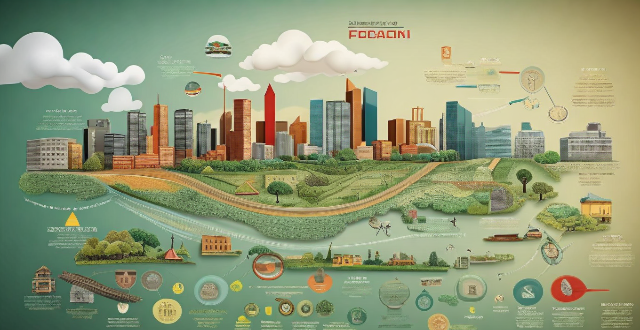
How do global economic trends affect personal wealth growth strategies ?
Global economic trends significantly influence personal wealth growth strategies by affecting factors such as interest rates, inflation, economic growth, global trade, and political stability. Understanding these trends helps individuals make informed decisions about investments and financial planning.

What is the role of macroeconomic indicators in stock market analysis ?
The article discusses the importance of macroeconomic indicators in stock market analysis, highlighting key indicators such as economic growth, inflation, interest rates, employment, and government policies. It suggests monitoring these indicators to identify trends and patterns that can impact the stock market, integrating this analysis with other tools for a comprehensive view.

What is the correlation between housing market indicators and the overall economy ?
The housing market is a significant indicator of the overall health of an economy, intertwined with employment, consumer spending, and financial markets. Housing starts and permits signal economic growth; existing home sales reflect consumer confidence; home price indexes affect household wealth and consumer spending; mortgage rates influence home purchases; inventory levels indicate market strength or challenges; builder confidence suggests future construction trends; foreclosure rates reveal economic distress; and rental market trends show limited purchasing options. These indicators provide insight into different facets of the economy, painting a comprehensive picture of the housing market's health and its relationship with the overall economic condition.

Which economic indicators are used to measure the health of the labor market ?
The health of the labor market is crucial for any economy, and several economic indicators are used to measure it. These include the unemployment rate, employment growth, labor force participation rate, wage growth, and job openings and vacancies. The unemployment rate measures the percentage of the labor force that is unemployed but actively seeking work, while employment growth refers to the number of new jobs created over a specific period. The labor force participation rate measures the percentage of working-age individuals who are either employed or actively seeking employment, and wage growth reflects the earning power of workers. Job openings and vacancies provide insight into the demand for labor within the economy. By monitoring these indicators regularly, stakeholders can identify trends and potential issues early on, allowing them to take proactive steps to address any challenges and promote a healthy labor market.

How can we balance economic development and water resource protection ?
Water resources are crucial for economic development but must be protected to ensure sustainability. Strategies for balancing these goals include prioritizing sustainable practices, implementing regulatory measures, fostering collaboration and partnerships, investing in infrastructure and technology, and educating and creating awareness. By adopting these approaches, we can achieve a balance between economic growth and water conservation, ensuring long-term sustainability for all.

What impact does consumer confidence have on economic recovery ?
Consumer confidence is a key driver of economic recovery. It stimulates growth, boosts employment rates, reduces unemployment, and increases government revenue. To improve consumer confidence, governments should encourage stable economic policies, provide financial education, promote transparency, and invest in infrastructure.
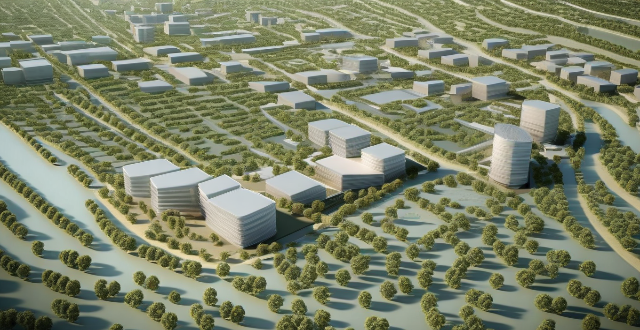
How do economic systems contribute to environmental problems and climate change ?
Economic systems, especially capitalism and industrialization, significantly impact the environment by promoting overproduction, waste, and reliance on fossil fuels. Issues such as built-in obsolescence, global trade emissions, and exploitation of natural resources exacerbate environmental problems. Additionally, population growth and urbanization increase consumption, while market failures and regulatory gaps often overlook environmental costs. Addressing these challenges requires a shift in economic priorities towards sustainability.

What is the relationship between economic recovery and employment rates ?
The relationship between economic recovery and employment rates is influenced by various factors such as increased aggregate demand, investment in the economy, government policies, and global factors. As the economy recovers, businesses start hiring more workers to meet the growing demand for goods and services, leading to an increase in employment rates. However, this relationship is complex and requires a deeper understanding of the different aspects involved.
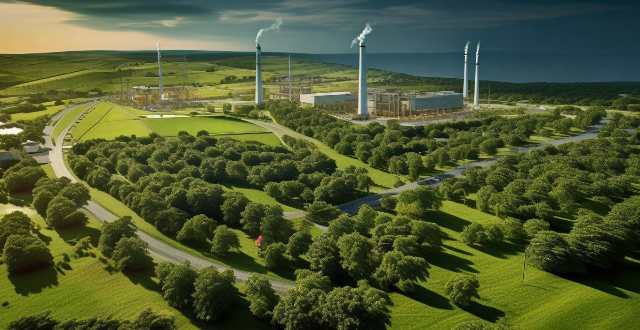
How can we balance economic growth with environmental sustainability ?
Balancing economic growth with environmental sustainability requires a multifaceted approach that includes promoting green infrastructure and renewable energy, encouraging sustainable business practices, fostering innovation and technology development, educating and engaging stakeholders, and implementing policies and regulations. By taking these steps, we can create a more sustainable future where economic prosperity coexists with environmental well-being. Achieving this balance will require ongoing effort from all sectors of society, including governments, businesses, communities, and individuals alike.

What is an economic stimulus plan ?
An economic stimulus plan is a government policy aimed at boosting a country's economy during times of slow growth or recession. The primary goal of such plans is to increase consumer spending, encourage business investments, and create jobs, thereby stimulating economic activity and promoting overall growth. Key features of an economic stimulus plan include tax cuts and rebates, government spending on infrastructure projects, monetary policy adjustments, direct assistance to businesses and individuals, and incentives for investment. Benefits of an economic stimulus plan include increased economic growth, job creation, long-term gains, and reduced poverty rates. However, potential downsides of an economic stimulus plan include national debt, inflation risks, crowding out effect, and short-term vs long-term effects. In conclusion, an economic stimulus plan is a multifaceted approach employed by governments to revive flagging economies. While these plans can have significant positive impacts on growth, employment, and overall well-being, they must be carefully designed and implemented to minimize potential drawbacks such as increased national debt and inflation risks.

How do changes in immigration policy influence economic growth ?
Changes in immigration policy can have a significant impact on economic growth by increasing the labor force, promoting diversity, increasing consumer spending, reducing wage inflation, and increasing tax revenue.

What is the outlook for the European Union's economic recovery ?
The economic recovery of the European Union (EU) depends on political stability, global economic conditions, and domestic policies. Unity among member states and effective governance are crucial for managing crises and implementing growth-promoting policies. Global trade dynamics and supply chain disruptions also play a significant role. Domestically, fiscal stimulus, structural reforms, and a balanced green transition are key. The outlook is optimistic but uncertain, with many influencing factors.

What are the economic benefits of biodiversity ?
Biodiversity plays a significant role in the global economy by providing various economic benefits. These include increased resilience to climate change, support for sustainable agriculture, tourism revenue, pharmaceutical and medical research opportunities, ecosystem services, fisheries and food security, cultural and aesthetic value, innovation and education, risk management and insurance, and trade and livelihoods. Preserving biodiversity is crucial for maintaining these economic benefits across different sectors.

What are the potential economic benefits of sharing climate information ?
The potential economic benefits of sharing climate information include improved decision making through better planning and management, risk assessment and mitigation, increased efficiency and productivity, innovation and new business opportunities, and growth of the green economy. By leveraging this information effectively, businesses, governments, and individuals can adapt to changing climatic conditions while minimizing risks and maximizing economic gains.

What are the potential economic benefits of mining resources on other planets ?
The article discusses the potential economic benefits of mining resources on other planets, including increased availability of resources, creation of new jobs, advancements in technology, stimulation of economic growth, diversification of energy sources, and expansion of human habitat.

What are the economic impacts of implementing renewable energy policies ?
Renewable energy policies have both positive and negative economic impacts, including job creation, energy cost savings, reduced emissions, higher upfront costs, intermittency issues, and land use concerns. As we transition towards a more sustainable future, it will be important to carefully consider these impacts and work towards finding solutions that balance environmental goals with economic realities.

What are the economic implications of a climate emergency ?
The climate emergency, primarily caused by human activities, has significant economic implications affecting various sectors of the global economy. These include impacts on natural resources such as water scarcity, soil degradation, and energy supply; loss of biodiversity affecting ecosystem services and tourism; reduced crop yields and livestock production affecting agriculture and food security; risks to infrastructure and urban areas from flooding and heat waves; direct and indirect effects on human health; and broader impacts on global economic growth and international trade. Addressing these challenges requires coordinated efforts from governments, businesses, and individuals around the world to reduce greenhouse gas emissions and adapt to the changing climate.

In what circumstances is an economic stimulus plan most necessary ?
An economic stimulus plan is most necessary during times of recession, slow economic growth, high unemployment rates, or financial crisis. These plans can help to boost economic activity, create jobs, and stabilize the financial system by implementing policies such as increasing government spending, reducing taxes, providing subsidies to businesses, encouraging investment in new technologies, expanding access to credit, investing in infrastructure projects, offering tax incentives for hiring new employees, and implementing regulatory reforms.

What is the relationship between energy prices and economic growth ?
The interplay between energy prices and economic growth is multifaceted, with each influencing the other in various ways. High energy prices can impede economic expansion by escalating production costs, diminishing consumer purchasing power, and fostering inflation. They might also spur investment in alternative energies and drive resource reallocation towards efficiency, counterbalancing some of their immediate negative impacts. Conversely, robust economic growth often amplifies energy demand, propelling prices upwards unless compensated by enhanced supply or technological advancements that boost efficiency. This intricate relationship underscores the importance of strategic policy interventions to manage energy pricing dynamics for sustainable economic development.

How does economic recovery affect different industries differently ?
Economic recovery affects industries differently based on their reliance on consumer spending, investment, government policies, and global markets. Consumer discretionary sectors like retail and hospitality are highly sensitive to economic fluctuations but can rebound quickly with increased consumer confidence. The technology sector often remains resilient during downturns, with continued growth in segments like software and online services. Manufacturing may face challenges due to supply chain disruptions but can rapidly expand with demand recovery. Financial services benefit from improved credit conditions and increased lending activities. Healthcare is generally less affected by economic cycles and can grow with aging populations. Energy sector recovery depends on global demand and policy shifts towards renewable energy. Understanding these differential impacts is crucial for investors, policymakers, and businesses to navigate the changing landscape effectively.

Are ESG investments more resilient during economic downturns ?
The text discusses the resilience of Environmental, Social, and Governance (ESG) investments during economic downturns. It defines ESG investments as those that prioritize sustainability, fair labor practices, and transparent operations. The importance of ESG criteria is highlighted in terms of risk management, stakeholder engagement, and long-term performance. The historical performance data suggests that ESG investments have performed comparably to non-ESG investments during previous economic downturns, potentially offering diversification benefits. The impact of ESG factors on resilience is discussed, including environmental factors, social factors, and governance factors. However, risks and challenges such as market sentiment and liquidity issues are also mentioned. The conclusion emphasizes that ESG investments have shown resilience during economic downturns due to their focus on long-term value creation and risk management strategies. It suggests that a well-diversified ESG portfolio can provide a balance between financial returns and positive social and environmental impacts, even during challenging economic times.